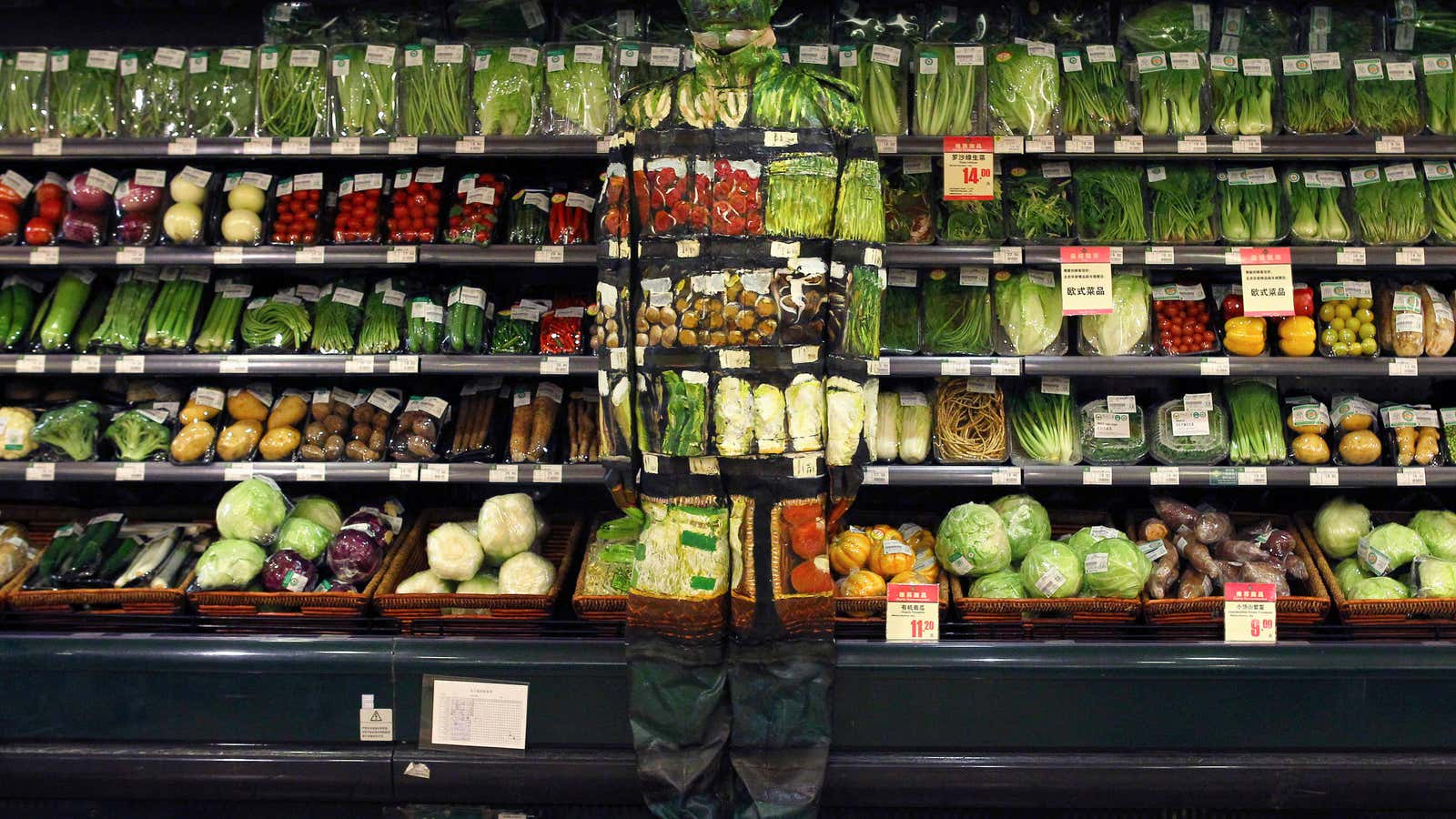The first time I heard the word “vegan” was from my 11th grade SAT prep teacher, a middle-aged white woman with cropped brown hair and an orange tint to her face. One day while she was chaperoning our lunch, my friends and I saw her eating a greenish sludge that brought to mind algae. When I asked her why she wasn’t eating the catered lunch, she said she was a vegan.
I was aware of vegetarians, my mom sometimes buying Boca or Morningstar products, but the term vegan was totally foreign. After Ms. Dayglo, I thought it was something only for weird white people. Whenever we saw her eating, we would laugh and joke that black people couldn’t stop eating meat and dairy because the moisture would be sucked out of them and they’d look drier than the Sahara. However, almost two years into my vegan journey, I’m stomping around with faux leather boots and my skin looks great.
Last December, I attended a vegan potluck hosted by two black women. I met a myriad of vegans, most of whom were black. In the year and a half since I turned vegan, I have been to several events like these, that let black, and other vegans of color, mingle with people that look like them. Veganism has been growing in the US; 2.5 % of Americans are now vegan according to a 2012 study by The Vegetarian Resource Group. That said, the only thing that seems to be missing from the pictures advertising this growth are black faces. Alicia Silverstone may be the poster child of contemporary veganism, but most people overlook the fact that Erykah Badu is vegan, too.
In May 2013, I decided to do a 30-day vegan challenge after years of going back and forth between being a pescatarian, vegetarian and meat eater. At the time, the only other vegan I knew, black or otherwise, was my older sister. She had already been vegan for a year and began to introduce me to the plant-based community: restaurants, clothing and conferences. Together we immersed ourselves into this unknown territory without feeling lost, but I think that this is rare among new black vegans.
Some I’ve met have described their transition into the vegan community as lonely, and felt that nobody shared their same cultural experiences. Although we are not a monolith, being able to identify with someone is important when indoctrinating yourself into a new lifestyle. Whenever I go to vegan restaurants or vegan expos I rarely see people of color. If I do, the feeling I get reminds me of when I was younger and would see a black model in magazines. And I’ve noticed that black vegans seem to sniff each other out, be it at conferences or on social media, to discuss their experiences in the vanilla world of veganism.
Here are three things we want you to understand:
Being vegan doesn’t make us less black. My African roots didn’t begin to fade once I stopped eating cheese and bacon. Black people are as varied as any other ethnic group and should be added to the vegan conversation not as tokens, but as contributing members of the community. Prince, Angela Basset and Senator Cory Booker of New Jersey, are black and vegan, and should be as visible as Gwyneth Paltrow or Moby.
You don’t have to choose between caring about black issues and animal rights. With the deaths of Eric Garner, Mike Brown and Tamir Rice, among others, 2014 has been a trying year for the black community. When I scrolled down my timeline and saw people posting messages of solidarity with #blacklivesmatter, I noticed that even though many black vegans were voicing their distaste, all but a few white vegans I follow were totally silent. The community that I have fully embraced and defended without hesitation has not done the same for my community, which both confuses and hurts me.
Just because you’re vegan doesn’t mean you won’t be called out for cultural appropriation. Blackness has long been appreciated by whites as entertainment, from minstrel shows to Iggy Azelea, but not as something worth embracing and engaging with intellectually. Recently, white couple Michelle Davis and Matt Holloway created a vegan website called Thug Kitchen. They quickly came under fire because people felt they were misappropriating black culture to promote themselves, the site rife with rap lyrics, slang and curses attached to vegan foods. Vegan activists like Bryant Terry and Breeze Harper have spoken out against the couple, but Davis and Holloway have chosen not to participate in any kind of open dialogue.
Many people look at me skeptically when I tell them I’m living a plant-based lifestyle. I’ve noticed that white vegans in particular often respond with something like, “Oh wow that’s so great, I’m really proud of you.” As if I’m doing something remarkable. But according to the same Vegetarian Research Group study mentioned above, only 3% of American whites identify as vegetarian or vegan, compared to 6% of blacks. Doesn’t twice the number of black people living on plant-based diets mean that I should be the one who’s surprised and proud of you?
